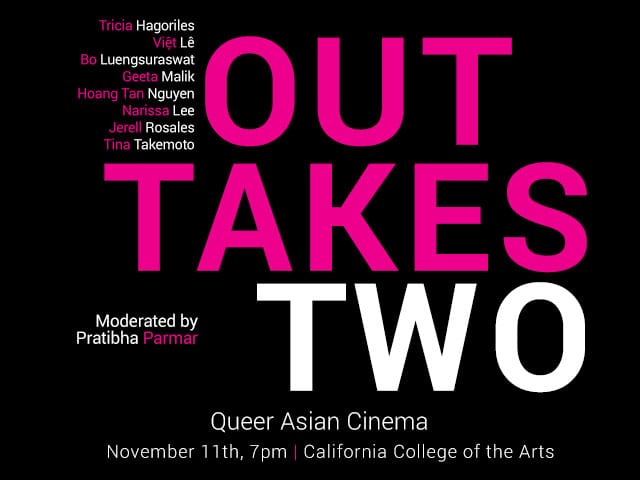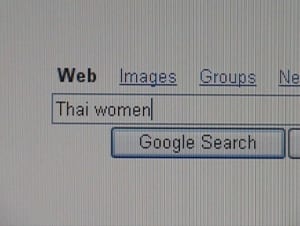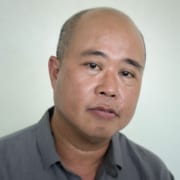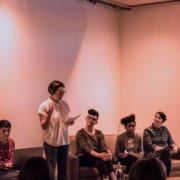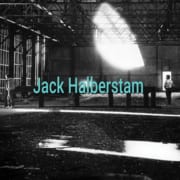Outtakes Two
OUTTAKES 2: Queer Asian Cinema
Wednesday November 11, 2015, 7-9pm
Timken Hall, SF Campus,
California College of the Arts, 1111 Eighth St, San Francisco, CA 94107
Free and open to the public.
Queer Conversations on Culture and the Arts (QCCA), California College of the Arts (CCA), and Center for Asian American Media (CAAM) present a new microseries devoted to Queer Asian Cinema.
Join us for a special screening and panel discussion featuring filmmakers who are active in queer Asian American cultural communities. Featuring works by filmmakers Tricia Hagoriles, Viet Le, Narissa Lee, Bo Luengsuraswat, Geeta Malik, Nguyen Tan Hoang, Jerell Rosales, and Tina Takemoto. The conversation will be moderated by award-winning director Pratibha Parmar (Nina’s Heavenly Delights and Alice Walker: Truth in Beauty).
SCREENING ORDER
No No Homo, Jerell Rosales 3 min
Occidental Paradise, Bo Luengsuraswat 3:27 min
Beat, Tricia Hagoriles 15 min
LOOK_IM_AZN, Nguyen Tan Hoang 6 min
Shameless, Geeta Malik 4 min
Warning Shot, Tina Takemoto 12 min.
eclipse (ruby), Viet Le 5 min
Adrift in Sunset, Narissa Lee 21 min
ARTISTS’ BIOGRAPHIES
JERELL ROSALES is an emerging Filipino-American film and television writer and director. His short films have been officially selected in over 40 film festivals worldwide and hailed in THE HUFFINGTON POST as a “demonstration of Rosales’ solid skill as a rising filmmaker.”
A “military brat” whose father served in the United States Air Force, Jerell was raised in Riverside California, hit puberty in Tokyo Japan, and grew up in Dayton Ohio, before coming back to Southern California where he received his BA in Directing and now currently pursuing his MFA in Directing from his alma mater, the UCLA School of Theater, Film & Television.
Jerell is a two-time SPOTLIGHT AWARD WINNER chosen by a panel of industry professional judges for his short films, BORN TO DANCE THIS WAY and BRITNEY-HOLICS ANONYMOUS — honored at the Director’s Guild of America as “one of the best films UCLA Film Festival has to offer” in 2012 and 2015 respectively. Born to Dance this Way, won the FESTIVAL FAVORITE Award at the 2013 Palm Springs Gay and Lesbian Film Festival, and to date has been officially selected in 25 film festivals worldwide over a 2-year run. Born to Dance this Way can be seen on HereTV™, America’s only Gay TV Network, and ShortsHD™, the first HD channel dedicated to short movies available on DIRECTV (Ch. 568), and AT&T U-Verse (Ch. 1789).
NO NO, HOMO, premiered at the Los Angeles Asian Pacific Film Festival and is successfully enjoying film festival screenings across the United States, officially selected in 14 film festivals to date. No No, Homo made its international premiere in Paris, France in 2014 and will be available on DVD and VOD in select European countries.
Film Synopsis: NO NO, HOMO. Alone at a matinee together, with a big, mouthwatering bucket of popcorn.
Thun “Bo” Luengsuraswat Bo Luengsuraswat is an interdisciplinary artist whose cultural intervention encompasses visual arts, comics, performance, filmmaking, writing, and culinary business. His work across these terrains of production addresses the complex connections among different experiences of marginalization, challenges capitalistic relational practices, and imagines alternative possibilities of desire and resistance. At the moment, Bo is penning a graphic memoir that addresses the ways in which trans visibility politics, the professionalization of immigrant rights movements, and the violence of the nonprofit industrial complex have shaped his experiences of immigration.
Bo holds an MA in Asian American Studies from the University of California, Los Angeles, and a BA in Visual Studies from the California College of the Arts. He is currently pursuing an MFA degree in Comics at the California College of the Arts.
Film Synopsis: Occidental Paradise explores “self-reflections” in the empire of information and images, this film presents an unsettling assemblage of cultural texts on Thailand that often pass as common sense.
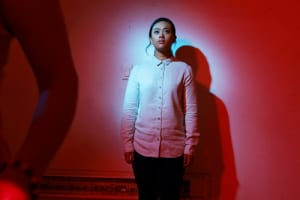 Tricia Hagoriles was born and raised in the east end of Toronto, Canada. In 2006, she produced and directed her first short film entitled, “Calling out” as part of Inside Out’s Queer Youth Digital Video Project. Graduating from the University of Toronto that same year, Tricia decided to pursue different aspects of filmmaking; spending a year as a post-production intern at Cuppa Coffee Animation Studios, before attending Sheridan College, focusing on Screenwriting and Cinematography.
Tricia Hagoriles was born and raised in the east end of Toronto, Canada. In 2006, she produced and directed her first short film entitled, “Calling out” as part of Inside Out’s Queer Youth Digital Video Project. Graduating from the University of Toronto that same year, Tricia decided to pursue different aspects of filmmaking; spending a year as a post-production intern at Cuppa Coffee Animation Studios, before attending Sheridan College, focusing on Screenwriting and Cinematography.
Tricia is currently a Digital Film Colourist for Alter Ego Post and recently ended her four-year run as Creative Director for Colour Me Dragg.
Film Synopsis: Beat is about Iggy, a shy illustrator who works from home due to a unique condition in which her heart glows and beats through her skin whenever she gets nervous. After a vivid dream of a mystery girl ripping her heart out of her chest, Iggy’s life is thrown into a frenzy when she discovers that said mystery girl suddenly appears as the new courier assigned to deliver her illustrations, amplifying her already out of control condition.
Soon, Iggy finds herself in a dilemma: Does she allow her unique form of anxiety to keep her from living her life? Or does she embrace it and go after the girl of her dreams?
 Nguyen Tan Hoang is a video artist whose work interrogates forms of desire in queer Asian male identities, Vietnamese diasporic cultural production, and Asian American popular culture. His short experimental videos have screened nationally and internationally in venues such as New York’s MOMA, the Musée National d’Art Moderne at the Centre Georges Pompidou, and The Getty Center. His critical writings have appeared in Porn Studies, Vectors: Journal of Culture and Technology in a Dynamic Vernacular, GLQ, and Resolutions 3: Video Praxis in Global Spaces. His book, A View from the Bottom: Asian American Masculinity and Sexual Representation (Duke UP, 2014), looks at the depiction of gay Asian bottomhood in film, video, and the Internet. He has programmed film, video, and performance work for a variety of international film festivals and other venues. He is Associate Professor of English and Film Studies at Bryn Mawr College.
Nguyen Tan Hoang is a video artist whose work interrogates forms of desire in queer Asian male identities, Vietnamese diasporic cultural production, and Asian American popular culture. His short experimental videos have screened nationally and internationally in venues such as New York’s MOMA, the Musée National d’Art Moderne at the Centre Georges Pompidou, and The Getty Center. His critical writings have appeared in Porn Studies, Vectors: Journal of Culture and Technology in a Dynamic Vernacular, GLQ, and Resolutions 3: Video Praxis in Global Spaces. His book, A View from the Bottom: Asian American Masculinity and Sexual Representation (Duke UP, 2014), looks at the depiction of gay Asian bottomhood in film, video, and the Internet. He has programmed film, video, and performance work for a variety of international film festivals and other venues. He is Associate Professor of English and Film Studies at Bryn Mawr College.
Film Synopsis: look_im_azn explores gay Asian men’s (GAMs) cruising strategies on American gay sex hookup websites. In environments deemed open and accessible, affording new sexual freedoms, GAMs often encounter such pronouncements as “No fats, no femmes, no Asians,” that is, caveats that severely constrain their cyber-cruising opportunities. I draw on two sets of GAMs’ cruising strategies in the face of such rejection: the headless torso pics as a way of “tactical masking” their GAM-ness and the use of screen names that proudly assert their Asianness (“GAM” and “AZN”) and those that exploit shameful racial slurs (“chink” and “gook”). The video combs online sex cruising grounds for articulations of gay Asian men’s desires and demands.
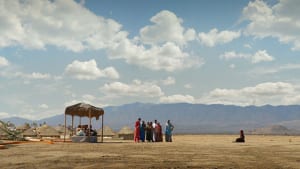 Geeta Malik received her M.F.A. from UCLA’s graduate film program in production. She has created several acclaimed narrative short films, including her viral narrative short, “Aunty Gs,” which earned a College Television Award (a “student Emmy”) in comedy production from the Academy of Television Arts and Sciences. Her narrative thesis film, “Beast,” was funded in part by the Edie and Lew Wasserman Film Production Award. Geeta is a recipient of the Coppel Screenwriting Award and the Jack Nicholson Distinguished Director Award.
Geeta Malik received her M.F.A. from UCLA’s graduate film program in production. She has created several acclaimed narrative short films, including her viral narrative short, “Aunty Gs,” which earned a College Television Award (a “student Emmy”) in comedy production from the Academy of Television Arts and Sciences. Her narrative thesis film, “Beast,” was funded in part by the Edie and Lew Wasserman Film Production Award. Geeta is a recipient of the Coppel Screenwriting Award and the Jack Nicholson Distinguished Director Award.
Geeta is the founder of Shetani Films, a full-service production company. Her first feature film, “Troublemaker,” premiered at the 2011 Cinequest Film Festival, and was the first feature completed under the Shetani Films banner. Her work has been shown and broadcast worldwide.
Film Synopsis: The tables are turned on the accusers when a woman on trial for prostitution flips the script in SHAMELESS.
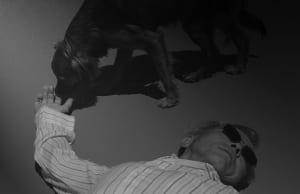 Tina Takemoto is an artist and associate professor of visual studies at California College of the Arts in San Francisco. Her work examines issues of race, queer identity, memory, and grief. Her current project explores the hidden dimensions of same-sex intimacy and queer sexuality for Japanese Americans incarcerated by the US government during World War II.
Tina Takemoto is an artist and associate professor of visual studies at California College of the Arts in San Francisco. Her work examines issues of race, queer identity, memory, and grief. Her current project explores the hidden dimensions of same-sex intimacy and queer sexuality for Japanese Americans incarcerated by the US government during World War II.
Takemoto has presented artwork and performances internationally and has received grants funded by Art Matters, James Irvine Foundation, and San Francisco Arts Commission. Her film Looking for Jiro received Best Experimental Film Jury Award at the Austin LGBT International Film Festival.
Her articles appear in Afterimage, Art Journal, GLQ, Performance Research, Radical Teacher, Theatre Survey, Women and Performance, and the anthology Thinking Through the Skin. Takemoto is the board president of the Queer Cultural Center and co-founder of Queer Conversations on Culture and the Arts. On occasion, she makes guerrilla appearances as Michael Jackson and Bjork-Geisha.
Film Synopsis: Warning Shot. One death. Three versions of the crime. James Wakasa, a 63-year-old Japanese American bachelor, was shot to death by military police at Topaz concentration camp during World War II. Was it justifiable homicide, an accidental fatality, or second-degree murder? The press said he was trying to escape, the shooter claimed it was a warning shot, the case file suggests he was killed while walking a dog. This experimental film essay uses the “Rashomon effect” to juxtapose the conflicting accounts detailing the circumstances and cause of Wakasa’s untimely death.
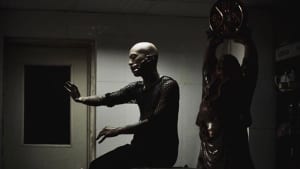 Việt Lê is an artist, writer, and curator. Lê is an Assistant Professor in Visual Studies at California College of the Arts (San Francisco | Oakland). He has been published in positions: asia critique; Crab Orchard Review; American Quarterly; Amerasia Journal; Art Journal; and the anthologies Writing from the Perfume River; Strange Cargo; The Spaces Between Us; Modern and Contemporary Southeast Asian Art; among others.
Việt Lê is an artist, writer, and curator. Lê is an Assistant Professor in Visual Studies at California College of the Arts (San Francisco | Oakland). He has been published in positions: asia critique; Crab Orchard Review; American Quarterly; Amerasia Journal; Art Journal; and the anthologies Writing from the Perfume River; Strange Cargo; The Spaces Between Us; Modern and Contemporary Southeast Asian Art; among others.
Lê has received fellowships from Fulbright-Hays (Việt Nam), William Joiner Center, Civitella Ranieri Foundation (Italy), Fine Arts Work Center (USA), Center for Khmer Studies (Cambodia), Art Matters Foundation, International Institute for Asian Studies (Leiden University, the Netherlands), and PEN Center USA. Lê has presented his work at The Banff Centre, Alberta, Canada; UCLA Hammer Museum, Los Angeles, USA; DoBaeBacSa Gallery, Seoul, Korea; Japan Foundation, Việt Nam; 1a Space, Hong Kong; Bangkok Art & Cultural Center (BACC), Thailand; Civitella Ranieri, Italy; Shanghai Biennale, China; Rio Gay Film Festival, Rio de Janeiro, Brazil; among other venues.
Film Synopsis: eclipse (ruby). Love. Sex. Wars. A “sexperimental,” transtastic Hanoi music video/visual poem for spirited lovers, spirits, and the spiritual — on the 40th anniversary of the Vietnam War.
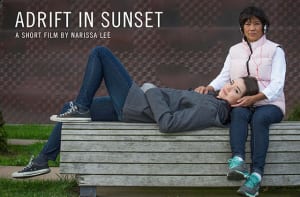 Narissa Lee has been running amok in the fields of digital media and filmmaking for over 10 years. She studied Film and Digital Media at UC Santa Cruz. Her short films have screened Stateside and in theaters internationally. One of Narissa’s short films, “The Bus Pass,” received an Audience Award at the LSF-Hamburg in 2011, Germany’s largest LGBT film festival. She is perpetually and secretly working on what she hopes to be the next sleeper-hit feature film to take the world by storm. Narissa would also like to figure out how to use film to reverse climate change, depose corrupt leaders and the corporatocracy, and spur a greater sense of humanity amongst all people and across all divisions. She just needs a few more minutes, please.
Narissa Lee has been running amok in the fields of digital media and filmmaking for over 10 years. She studied Film and Digital Media at UC Santa Cruz. Her short films have screened Stateside and in theaters internationally. One of Narissa’s short films, “The Bus Pass,” received an Audience Award at the LSF-Hamburg in 2011, Germany’s largest LGBT film festival. She is perpetually and secretly working on what she hopes to be the next sleeper-hit feature film to take the world by storm. Narissa would also like to figure out how to use film to reverse climate change, depose corrupt leaders and the corporatocracy, and spur a greater sense of humanity amongst all people and across all divisions. She just needs a few more minutes, please.
Narissa also holds the position of Director of Creative Media and Development at Teachscape, an educational technology company in San Francisco, CA.
Film Synopsis: Adrift in Sunset. Dao has double booked her afternoon. She’s ready to meet up with her date but is also supposed to spend time with her mom who has Alzheimer’s disease. Would it really be a good idea to combine the two? Dao’s gallivanting ways come to a halt when her family and romantic lives collide in this intimate piece about love and loss — and maybe a little more about love.
About QCCA
Queer Conversations on Culture and the Arts brings together locally and nationally renowned artists, writers, filmmakers, and scholars for a series of conversations to discuss a broad range of LGBTQI topics in the humanities, architecture, design, and the arts. QCCA is an ongoing collaboration between the Queer Cultural Center, California College of the Arts, and U.C. Berkeley’s College of Environmental Design.
Additional support provided by the Graduate Program in Visual and Critical Studies, the Office of the Provost, Becca Giang, Red Envelope Giving Circle, Gay Asian Pacific Alliance (GAPA), Asian Pacific Islander Queer Women and Transgender Community (APIQWTC).

